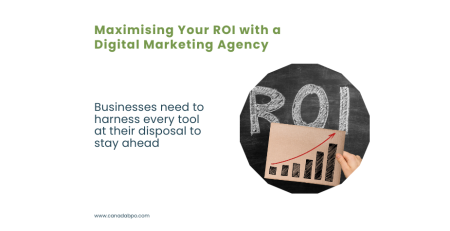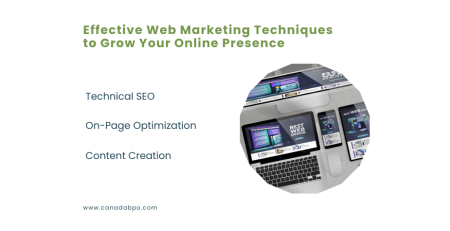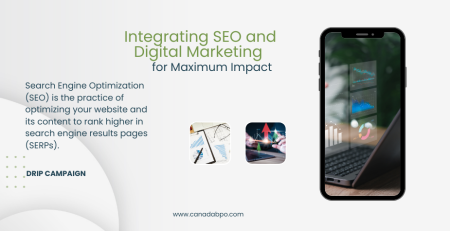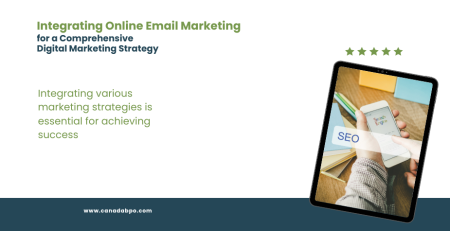In the rapidly evolving world of digital marketing, staying ahead of the curve requires a deep understanding of various methods and techniques. Whether you’re a seasoned marketer or just starting out, knowing how to leverage different strategies can significantly impact your brand’s online presence and overall success. This blog post delves into some of the most effective digital marketing methods and techniques that can help you drive engagement, generate leads, and boost your business growth.
1. Search Engine Optimization (SEO)
SEO is a fundamental digital marketing technique aimed at improving your website’s visibility on search engines like Google. By optimizing your site for relevant keywords, you increase your chances of ranking higher in search results, driving organic traffic to your website. Key SEO methods include:
- Keyword Research: Identify relevant keywords that potential customers are searching for and incorporate them into your website’s content.
- On-Page SEO: Optimize individual pages by using keywords in meta titles, descriptions, headers, and throughout the content.
- Technical SEO: Ensure your website is technically sound with a fast loading speed, mobile responsiveness, and an easy-to-navigate structure.
- Link Building: Gain high-quality backlinks from authoritative sites to enhance your site’s credibility and search ranking.
2. Content Marketing
Content marketing focuses on creating and distributing valuable, relevant content to attract and engage your target audience. It’s a powerful method for establishing thought leadership and nurturing leads. Effective content marketing techniques include:
- Blog Posts: Regularly publish blog posts that provide insights, solutions, and valuable information related to your industry.
- E-books and Whitepapers: Develop comprehensive resources that delve deep into industry topics and offer actionable advice.
- Infographics: Create visually appealing infographics that simplify complex information and make it easy to understand.
- Case Studies: Share real-life examples of how your products or services have solved problems for your clients.
3. Social Media Marketing
Social media marketing involves using platforms like Facebook, Twitter, LinkedIn, and Instagram to connect with your audience, build brand awareness, and drive engagement. Key techniques for effective social media marketing include:
- Content Sharing: Regularly post updates, articles, and multimedia content that resonates with your audience and encourages interaction.
- Paid Advertising: Use targeted ads to reach specific demographics, boost visibility, and drive traffic to your website.
- Community Engagement: Actively engage with your followers by responding to comments, participating in discussions, and addressing feedback.
- Analytics: Track and analyze your social media performance to understand what content performs best and refine your strategy accordingly.
4. Email Marketing
Email marketing remains one of the most effective ways to nurture leads, retain customers, and drive conversions. Effective email marketing techniques include:
- Segmentation: Divide your email list into segments based on factors like demographics, purchase history, and engagement levels to send more personalized messages.
- Automated Campaigns: Set up automated email workflows to nurture leads through the buyer’s journey with relevant content and offers.
- A/B Testing: Test different subject lines, content, and CTAs to determine what resonates best with your audience.
- Analytics: Monitor open rates, click-through rates, and conversion rates to assess the effectiveness of your email campaigns and make data-driven improvements.
5. Pay-Per-Click (PPC) Advertising
PPC advertising involves placing ads on search engines or social media platforms and paying each time someone clicks on your ad. It’s an effective way to drive targeted traffic to your website quickly. Key PPC techniques include:
- Keyword Targeting: Choose relevant keywords that potential customers are likely to search for and bid on them to display your ads.
- Ad Copy Optimization: Craft compelling ad copy with a clear call-to-action (CTA) to encourage clicks and conversions.
- Landing Page Optimization: Ensure the landing pages linked to your ads are designed to convert visitors with relevant content and a strong CTA.
- Campaign Management: Continuously monitor and adjust your campaigns to optimize performance and achieve the best ROI.
6. Influencer Marketing
Influencer marketing leverages individuals with a strong following and credibility in your industry to promote your brand. It’s a method for reaching a larger audience and building trust through authentic endorsements. Effective influencer marketing techniques include:
- Identify Relevant Influencers: Choose influencers whose audience aligns with your target market and whose values match your brand.
- Collaborate on Content: Work with influencers to create engaging content that highlights your products or services in a genuine way.
- Track Results: Measure the impact of your influencer campaigns through engagement metrics, referral traffic, and conversions.
7. Affiliate Marketing
Affiliate marketing is a performance-based method where you reward affiliates for driving traffic or sales to your website through their promotional efforts. Key techniques for successful affiliate marketing include:
- Recruit Affiliates: Find and partner with affiliates who have a relevant audience and can effectively promote your products or services.
- Provide Marketing Materials: Supply affiliates with promotional materials such as banners, links, and content to help them drive traffic to your site.
- Track Performance: Use tracking tools to monitor affiliate performance and ensure accurate compensation based on conversions or sales.
8. Web Analytics
Web analytics involves using tools like Google Analytics to track and analyze your website’s performance. It’s crucial for understanding how visitors interact with your site and optimizing your digital marketing efforts. Key techniques for leveraging web analytics include:
- Track Key Metrics: Monitor metrics such as website traffic, bounce rates, conversion rates, and user behavior to gain insights into your site’s performance.
- Analyze User Behavior: Use analytics to understand how users navigate your site and identify areas for improvement.
- Generate Reports: Create regular reports to assess the effectiveness of your marketing strategies and make data-driven decisions.
An effective digital marketing strategy encompasses a variety of methods and techniques tailored to your business goals and target audience. By leveraging SEO, content marketing, social media, email marketing, PPC, influencer marketing, affiliate marketing, and web analytics, you can create a comprehensive approach that drives engagement, generates leads, and achieves your desired outcomes.
Remember that the digital marketing landscape is constantly evolving, so staying informed about the latest trends and best practices is key to maintaining a competitive edge. Implement these methods and techniques to build a robust digital marketing strategy that delivers results and propels your business forward.











Leave a Reply